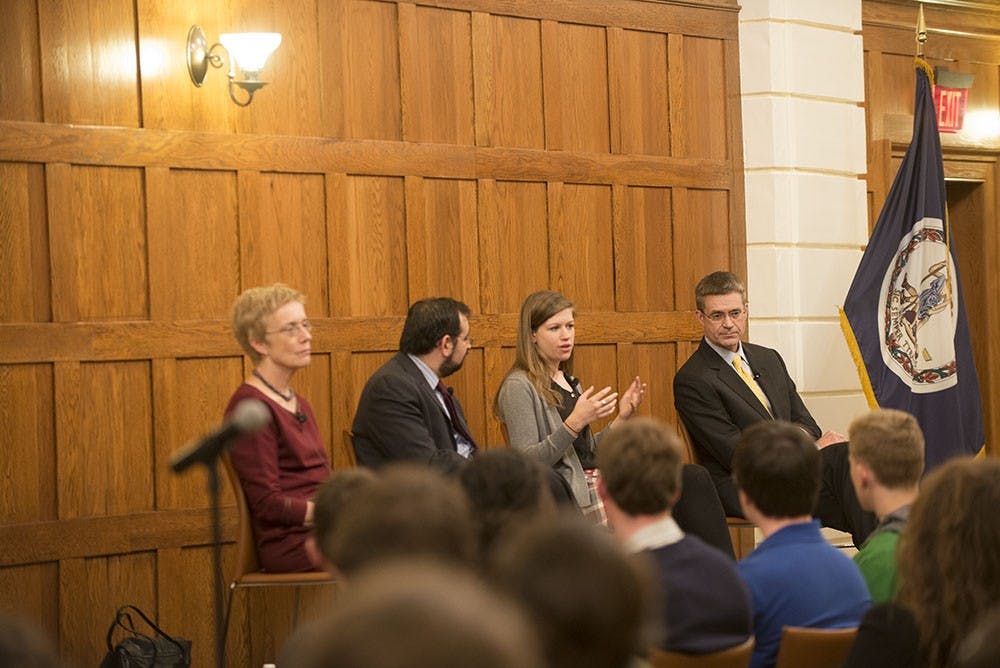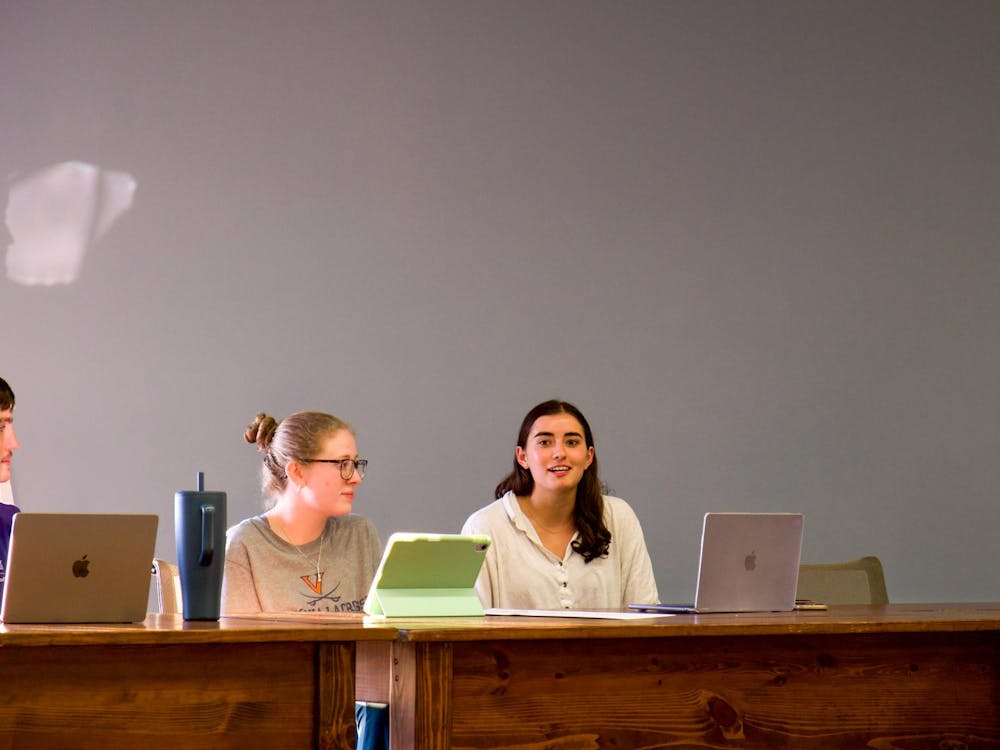The Batten School and the Seriatim Journal of American Politics held a panel on student sexual misconduct Tuesday, focused on how policy and law interact with issues of sexual assault on college campuses across the country.
The panel included Batten Dean Allan Stam; Emily Renda, the project coordinator for sexual misconduct in the Office of the Vice President for Student Affairs; Joseph Cohn, the legislative and policy director for the Foundation of Individual Rights in Education; and Law Prof. Anne Coughlin. Second-year College student Andy Boyer moderated the event.
Panel members discussed civil and criminal justice systems and how the two systems apply different standards of proof toward sexual misconduct. University disciplinary proceedings on Grounds are subject to civil codes of conduct, whereas the police department engages in criminal prosecution.
Panel members disagreed as to how differently the processes of civil and criminal justice should be conducted, especially with respect to student sexual assault and misconduct.
Renda said the purposes of these two justice systems are quite apparently disparate. Civil justice cases are intent upon being “rehabilitative and restoring” whereas the criminal justice system is “punitive and retributive,” she said.
As it stands, criminal justice courts require evidence "beyond a reasonable doubt" that an individual is guilty of the accused crime. Civil cases in the realm of universities and college campuses operate under the “preponderance of evidence” standard in which it must seem more likely than not that the individual is guilty, a substantially lower standard.
Cohn said this is not entirely fair, as students’ careers, reputations and, ultimately, livelihoods could be negatively affected based on a less than satisfactory amount of evidence.
“We’re talking about how much certainty the fact-finder has,” he said. “People’s entire careers and reputations are at stake [and not allowing lawyers] is bad policy.”
Cohn cited several ways expulsion could damage a student’s future career, and emphasized the need to take such considerations seriously.
Stam responded by saying the controversy regarding sexual assault at the University is hinged not on an overuse of civil authority by the administration, but in a lack thereof. He said criminal law can operate in a different way than University proceedings because “we are entitled to freedom” in this country.
“No one is entitled to attend the University of Virginia; it is a privilege,” Stam said. “The community has standards, perhaps they must be articulated more clearly.”
The panel also discussed a policy known as affirmative consent, or “yes means yes.”
Renda said the concept requires “clear, unambiguous, voluntary consent” which ensures the legality of a sexual encounter. In contrast with the “relatively antiquated Virginia rape statute,” she said affirmative consent allows individuals to feel safe in reporting that they did not give consent.
Coughlin said that not only should campus code be revised to include affirmative permission, but that criminal law should also change its statute on sexual assault and what defines rape.
“You’ve got to ask not only for ‘yes means yes’ as a campus code, but to get the criminal code revised,” she said. “I want this to be a much broader statute.”
Cohn said there is a risk in changing University code to favor the victim too heavily. If campus policy begins to centralize adjudication of a crime such as sexual assault within the civil confines of the University community, then the chances of prosecution of the perpetrators of the crime plummet. He said expulsion — the most stringent penalty the University itself can deliver — is not a panacea.
“When you expel someone, you as a community are not made any safer,” Cohn said. “They are out of your jurisdiction.”
Coughlin said the “expressive value of expulsion” is still important in creating a safe community for men and women who have the right to education. She agreed that in severe cases of sexual assault such as rape, a criminal trial should be sought “swiftly,” but the civil law of the University community deals with a much wider range of sexual misconduct which a civil proceeding is more able to handle.
“Civil rights are supposed to ensure men and women have equal access to education,” she said.
The University recently posted its new Student Sexual Misconduct Policy. A public comment period soliciting feedback and suggestions is open until Dec. 12.







